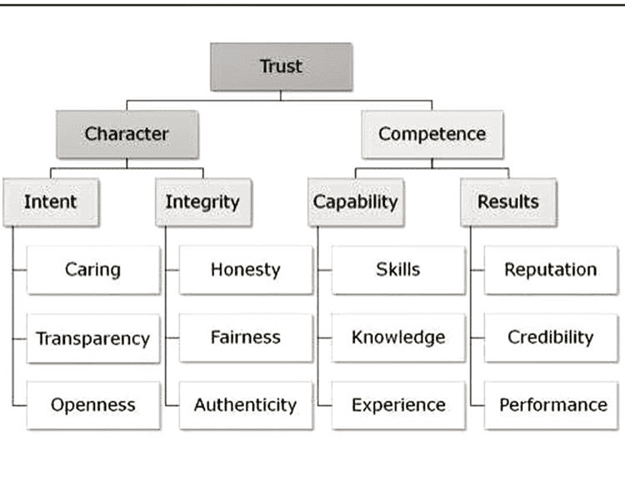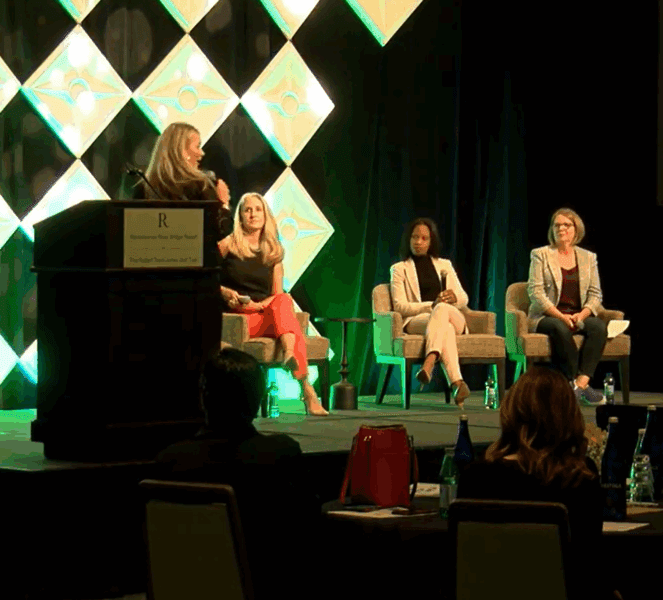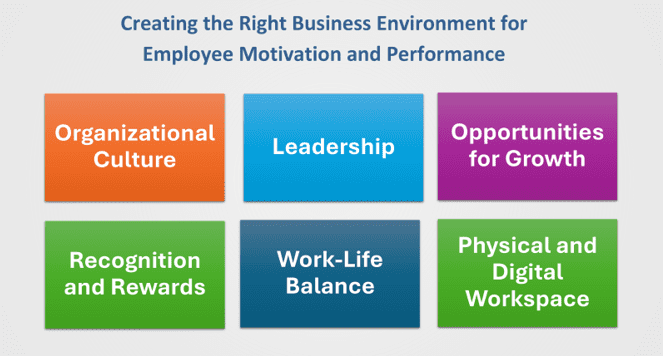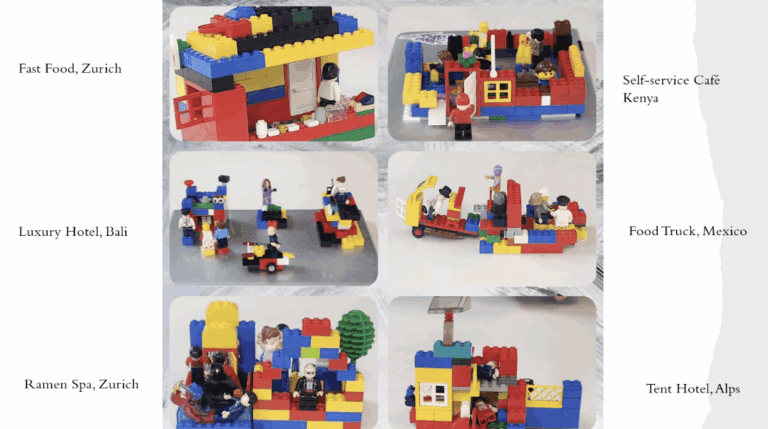Trust is “hot.” Today, more than ever, it’s increasingly recognized as an essential asset to break down silos, foster collaboration, deepen teamwork, drive engagement, and manage the never-ending process of change.

“When trust is present, people step forward and do their best work, together and efficiently. They align around a common purpose, take risks, think out of the box, have each other’s backs, and communicate openly and honestly. – Dennis Reina, PhD., and Michelle Reina, PhD., co-founders of Reina”
When trust is absent, people jockey for position, hoard information, play it safe, and talk about — rather than to — one another. In all teams, trust will be built and trust will be broken. It comes with the territory of human relationships. Trust is especially vulnerable during periods of rapid growth or decline, or when there is change. It’s no secret that trust is the most important need of people at work. But despite this importance, teams struggle to build and sustain trust in the long term.
When I wrote the article “Leading From Behind”, I received a lot of feedback, much in person, from friends, well-wishers, colleagues and leaders, both aspiring and established. Some agreed, and as anticipated, others did not like the idea of the spotlight to your subordinates. All in all I felt there was a need to extend that thought and add the most important element in to it – trust.
When it comes to the issue of employee performance in an organization, creating a sense of trust is one of the key factors to be considered. Trust forms the basis of all relationships and interactions. It is just as important in professional relationships as it is in personal ones. Trust is a culture as well as a value.
Any company, business unit or department able to create a strong sense of trust in the workplace is better armed to withstand turmoil that may arise from changing dynamics and competition. Trust is the tool that provides clarity on what your team and company stands for.
Trust is complex, meaning different things to different people, and while it can be positive and if broken it can be very negative, it is emotionally provocative.
Importance of trust
Successful businesses are built on relationships. The foundation of relationships is trust, be it between employers and employees, organization and customers, internal and external stakeholders. The absence of trust only creates insecurity that can eventually lead to catastrophe.
If we are able to foster a strong culture of trust at the workplace we can increase productivity, enhance employee morale and efficiency of teams, while reducing the time to make key decisions and curb conflict at individual, departmental and interdepartmental levels.
But what exactly is trust? In the workplace it is a sense of security that you feel, based on the belief that someone or something is reliable, dependable, good, honest, and effective. At the least, there exists a meaningful combination of some of these attributes. When applied to relationships, trust develops when people interact and appreciate the results, in terms of the quality of what they receive and the way it is presented and/or delivered.
Building trust
Trust is built through actions, not words. As a manager or leader you can’t just say you trust a particular employee or team, you need to demonstrate that through the actions you take on a daily basis.
This chart is one of the most powerful visual guides to help understand at a glance what is needed to build trust. At the top are two key factors, character and competence.
 1. Character
1. Character
Character sets the tone and direction of teamwork. This dimension of trust represents mutually serving intentions and is the starting point of a team relationship. When teams have trust of character, each member has faith that the others will behave as expected. Team members care about one another as people and hold each other’s best interest in mind.
“Strong character builds trust, strengthens respect, promotes loyalty, and translates to rock-solid reputations” – Frank Sonnenberg.
Team members build this trust when they do what they say they will do, stimulating a mutual view of reliability and trust within the team. Any member who can’t deliver steps up, renegotiates the task and is supported.
2. Competency
This opens the door for team members to contribute and use their knowledge to make a difference. Members build trust by leveraging the skills and abilities of each other, seeking input, engaging in collective decision making, and sharing new skills. Mutual development of competencies enables the innovation that teams need to be competitive.
It is the perfect blend of these two factors that help teams understand the behaviors needed to build and sustain trust and foster their trustworthiness.
In addition to the trust you show your team, you must also enable it to flow between employees, other teams and departments. You should also understand your employees’ expectations of you. It is easy for a lack of trust to develop when an employee feels an employer has unrealistic expectations of them and they don’t believe they are ever able to achieve these objectives.
Building and sustaining trust
While it’s commonly accepted that trust is a non-negotiable characteristic of a high-performing team, this understanding is only the starting point to building and sustaining trust. Leaders realise that people who are supposed to be working together as a team need to do so in true spirit.
It takes trust to help team members connect with one another on a human level and forge supportive, meaningful relationships that produce results. They need to trust in themselves and one another. As leader you also realize that the need for trust presents itself in different ways, such as a necessity to deepen engagement, foster collaboration, drive change, or support a team through growth. To build team trust, we need to understand how it really works in teams—and to extend compassion regarding the complexities and challenges that naturally accompany it. We need to know where trust stands in our own team, and be prepared to embrace opportunities to learn, grow and develop and live the conviction trust building desires. We also need to be prepared to rebuild trust when—not if—it is compromised. Trust building cannot be viewed simply as a one-off initiative. Rather, sustaining trust requires continued effort on behalf of all team members.
Trust or the lack of it — is inherent in every action we take and affects everything we do. It must be carefully constructed, vigorously nurtured, and constantly reinforced. Trust is never guaranteed, and can’t be won overnight. It takes a long time to develop but can be lost in the blink of an eye.
Remember
Trust is a central feature of all human relationships. It begins with our earliest social interactions and has a powerful effect on most of our relationships throughout our lives. There is still much to learn about how trust develops in relationships, the consequences when it is broken and the ways in which it can be rebuilt.
As we continue building trust we learn important things about each other that enrich the quality of our most valued relationships.
Trust is earned when actions meet words.


 1. Character
1. Character
















